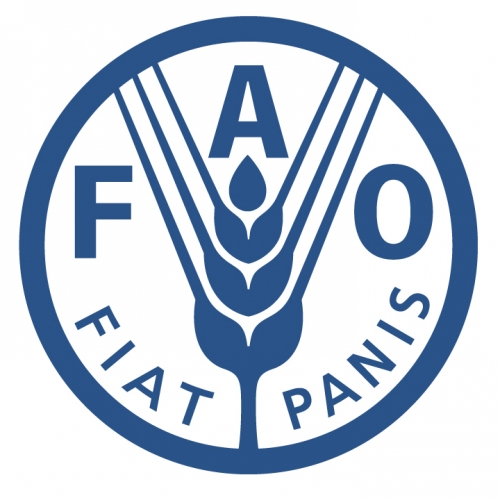(offre en anglais) Food and Agriculture organization of the United Nations recrute un(e) consultant(e) Retour vers les opportunités
Échéance
05 Juin 2018 Il y a 8 ans
Critères d'éligibilité
Cliquez ici pour parcourir les critères d'éligibilitéPartager l'opportunité sur
Détails de l'opportunité
Job Title: National Energy and water policy Consultant
Division/Department: RNERD
Programme/Project Number: TCP/RAB/3604
Location: Tunisia – with travel to field sites as required
Expected Start Date of Assignment: ASAP
Duration: 30 days WAE in 6 months
Reports to: Faycel Chenini
Title: LTO
GENERAL DESCRIPTION OF TASK(S) AND OBJECTIVES TO BE ACHIEVED
Under the overall supervision of the ADG/RNE, the directive of the Regional Programme Team Leader and the technical supervision of the Lead Technical Officer and in close collaboration with the FAO representative of Egypt and HQ Technical Officers, and relevant national government staff, the National Consultant will undertake the following tasks:
- Collaborate closely with the FAO Country office, FAO technical officers in the regional office and HQ as well as with government counterparts.
- Collect data and information on policy (including regulation, subsidies and other policy instruments), laws and legislation as well as strategies/ action plans pertaining to solar irrigation. This requires the consultant to be proactive and inquisitive.
- Provide list of private sector actors, NGOs, government institutions and other that are doing practical work with solar irrigation systems in the country.
- Identify case studies (areas/ farms where solar-powered irrigation systems have been installed), establish contacts and collect data on the type of system, its performance and other key information on how it has been financed, who owns and operates it, what challenges there are, what its impacts have been on agricultural productivity and groundwater resources, etc.
- Analyse the collected data to draw conclusions about the risks and potential for upscaling solar irrigation at the national/ regional level and make recommendations on how to do so sustainably.
Based on the above, prepare country assessment report on solar irrigation(40 – 60 pp + annexes) with data and analysis on the following:
a) Current uses of SPIS in country;
b) Existing and potential risks with SPIS completing former assessments such as the GIZ “Multi-country and Stocktaking Report”;
c) Key factors determining the success and failure of SPIS on the ground (biophysical, technical, agronomic, managerial, organisational and financial aspects, gender aspects);
d) Relevant legal, policy and financial instruments by government, financial institutions and private sector to promote and regulate SPIS, including those leading to an enhanced gender-sensitive use of SPIS. The reports should also look at how farm-level application of SPIS is linked to national policy frameworks and support structures.
e) Recommendations towards technical, financial, regulatory and policy mechanisms to ensure the long-term sustainability of SPIS technology.
Revise Country Assessment Report based on comments by FAO and government counterparts (two rounds of review)
The consultant is expected to proactively arrange in-country travel in coordination with FAO country office when needed. This might be necessary when collecting data on specific solar irrigation systems.
Description:
Collect data and information on policy (including regulation, subsidies and other policy instruments), laws and legislation as well as strategies/ action plans pertaining to solar irrigation. Provide list of private sector actors, NGOs, government institutions and other that are doing practical work with solar irrigation systems in the country.
Identify case studies (areas/ farms where solar-powered irrigation systems have been installed), establish contacts and collect data on the type of system, its performance and other key information on how it has been financed, who owns and operates it, what challenges there are, what its impacts have been on agricultural productivity and groundwater resources, etc.
Analyse the collected data to draw conclusions about the risks and potential for upscaling solar irrigation at the national/ regional level and make recommendations on how to do so sustainably.
Based on the above, prepare country assessment report on solar irrigation (40 – 60 pp + annexes) with data and analysis and revise the Report based on comments by FAO and government counterparts.
Critères d'éligibilité
- Advanced University degree in Agriculture, Engineering with specification in solar energy and water resources and irrigation development;
- Working knowledge of English.
- Seven years of relevant experience in solar energy and water resources development and management.
- Familiarity with agricultural water management and solar energy use
L'opportunité a expiré
Cette opportunité n'est malheureusement plus disponible sur Jamaity. Visitez régulièrement la rubrique opportunités pour ne plus en rater.
Suivez Jamaity sur LinkedIn
Obtenez Jamaity Mobile dès maintenant

Offre d'emploi Publié sur Jamaity le 30 mai 2018
Découvrez encore plus d'opportunités sur Jamaity en cliquant sur ce lien.
